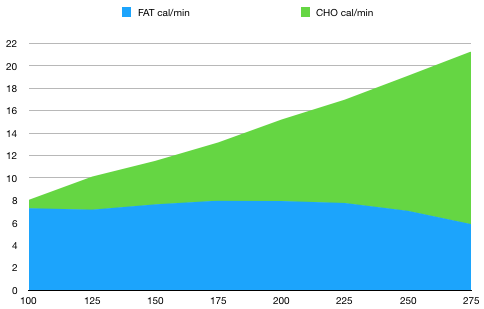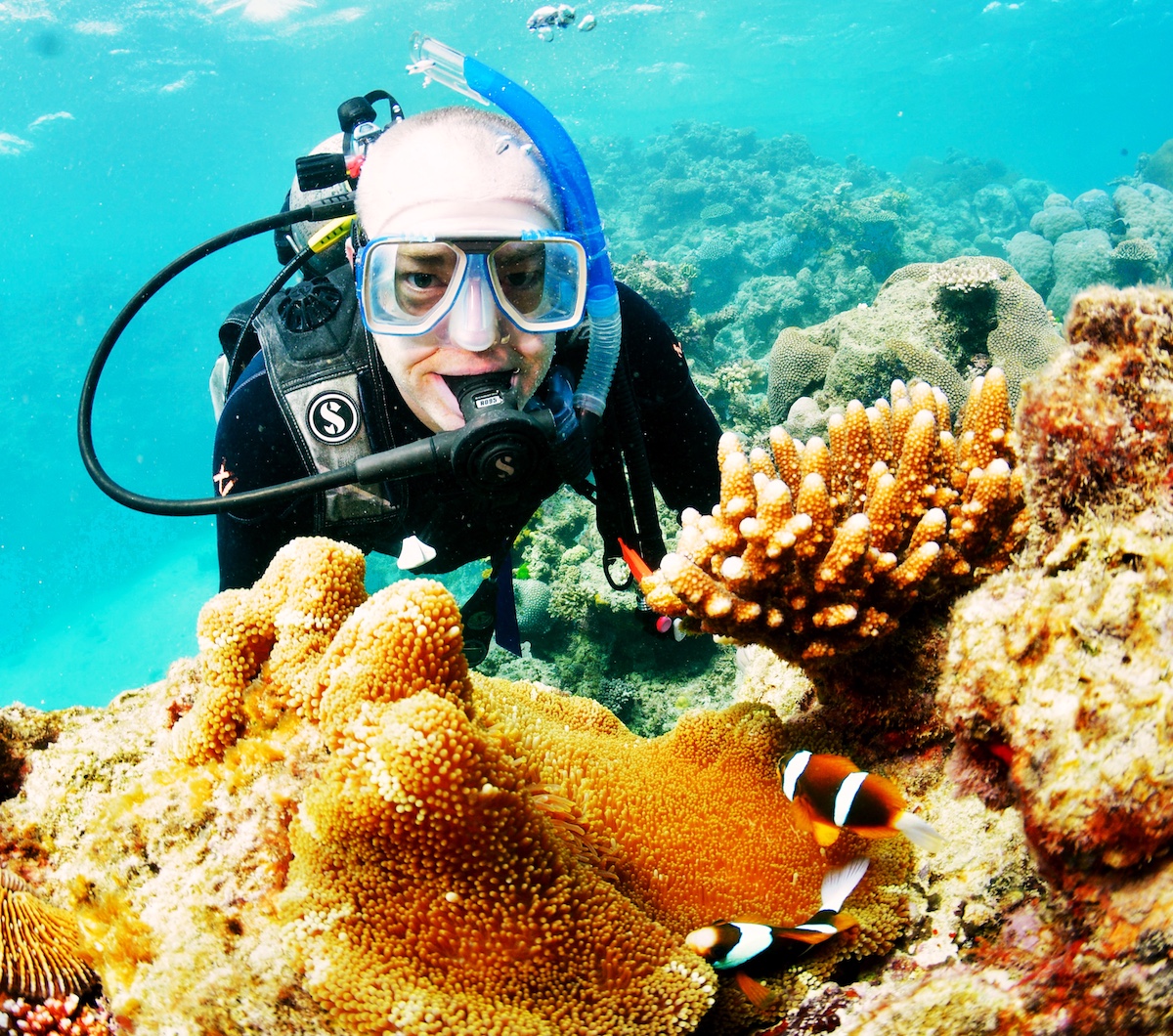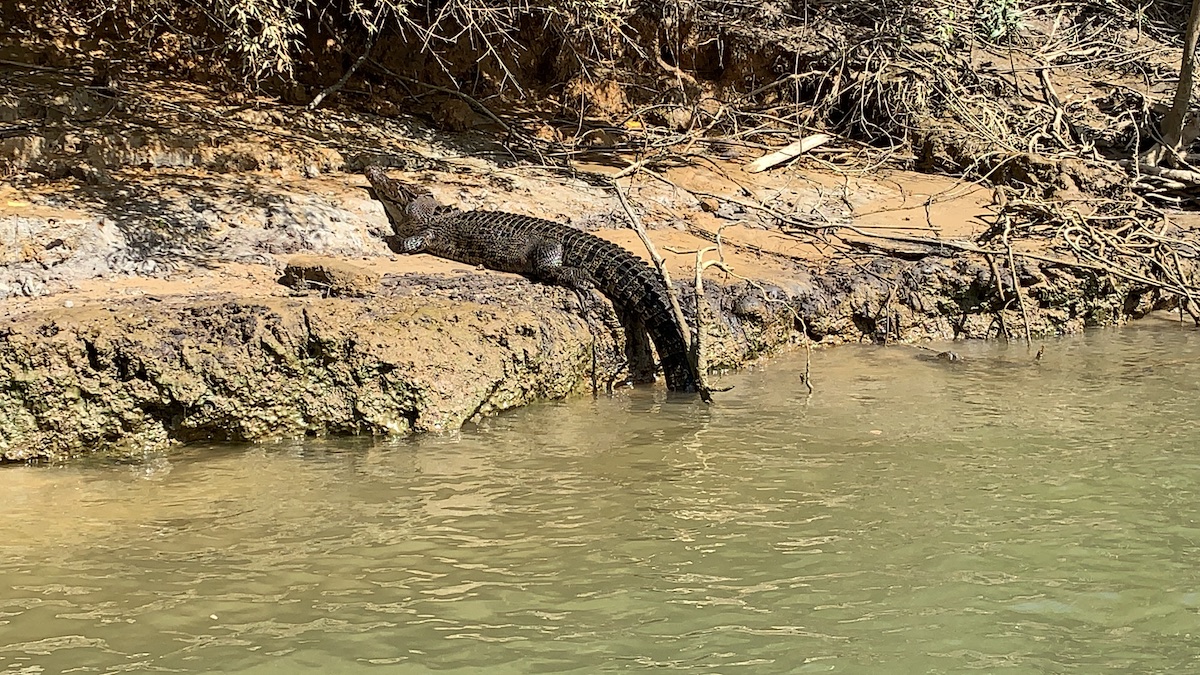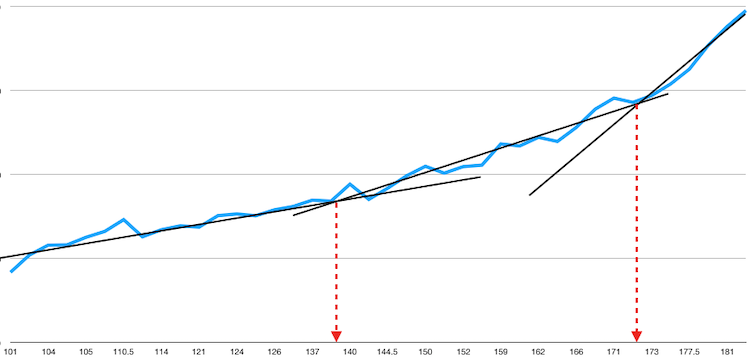I went and had a Metabolic Test yesterday. A what, you ask? A metabolic test - you get on a stationary bike, they hook you up to a metabolic cart which measures the volumes of oxygen and carbon dioxide you inhale and exhale. You start cycling at a very easy rate, and every few minutes the rate increases until you’re too exhausted to cycle anymore. The data from the metabolic cart allows you to determine how much of your energy expenditure is coming from fat (FAT) and how much is coming from carbs (CHO) and how that changes as your effort increases.
Why Do This?
Well, it all started last year when I had finished a pretty consistent year of training and I looked back at my cumulative training data. I’d ridden a touch over 11,000km and burned about 270,000kcal but I hadn’t lost any weight. Sure, I have a sweet tooth and eat too much jellies etc. but overall my diet is pretty decent - bugger all processed food, cook most meals etc. etc. so I thought I’d have dropped a few kilos at least.
I’d read a little about metabolic tests over the years and decided I’d like to try one out, but the only place I could find that was offering them to the public was Jupiter Health on the Gold Coast, which isn’t convenient from Sydney. However, since we were moving to Brisbane in May 2018, I booked an appointment for late May last year. I did the test and it showed I was a really bad sugar burner, i.e: I was getting most of my energy from CHO on the bike and hardly burning any fat. This seemed to explain why I wasn’t losing weight - after all, if you’re not burning off your fat stores while exercising, when are you going to burn them off?
I haven’t done much training over the year since, but I have been reading about how to improve your fat burning. Alan Couzen, an exercise physiologist and coach has some informative articles, particularly How to turn yourself into a Fat-Burner, and while reading that I came across his articles on how you go about getting your fat burning tested, i.e: how to do a proper metabolic test, particularly Getting your ‘fat burning’ tested Part 1: Equipment and protocol.
Reading that confirmed some suspicions I had about the test I’d had done on the Gold Coast and the data I’d obtained from it. The two major concerns I had was that the basal rate data, obtained when you’re lying on a bed doing nothing for 15mins, showed me with a heart rate around 90-100bpm, which is about twice what I’d expect in that scenario. There was also a bit more fluctuation in the power data at each level and the time at each level didn’t seem to be consistent. I followed Alan’s suggestion to check with my local University’s Exercise Physiology department to see if I could do a test with them.
Luckily for me, I have Uni of Queensland (UQ) and Queensland Uni of Technology (QUT) to choose from, and, as it happened, QUT have their E3 Lab a 20min drive away, so I emailed them with my requirements and they were able to help.
The Protocol
Alan’s site provides a calculator where you can enter your estimated FTP and it pumps out your suggested starting level and how much the power output should be increased per level. It recommended that I start at 130W, but since the data from the previous test showed I was already starting to burn significant amounts of carbs at that level, I chose to start at 100W instead.
- Each level lasts 5mins.
- Start at 100W, then add 25W per level.
The guys doing the testing told me to tell them when I knew I would not be able to complete the next 5min level and we’d stop the test.
The Test
The test itself isn’t too exciting. As described, you start pedalling at an easy pace and it just keeps getting harder. The first 20 minutes are a bit boring as the work load is quite low and I was just trying to maintain a smooth pedal stroke and consistent breathing, i.e: instead of shallow breathing at low workloads, to try consistent deeper breaths throughout the test.
Wearing the mask take a bit of getting used to - at the start of the test you feel a bit weird as you’re not really breathing very often so it feels like the mask is keeping your mouth shut. Your heart rate is probably a few beats higher as a result too. As you start working harder and breathing more it becomes a non-issue.
The tightness of the straps keeping the mask on my face meant it was tricky to find a comfortable head position. Maintaining a normal riding position as if I was out on the road meant they were digging into the back of my head, so looking down at the bottom bracket seems to work best. I was getting a bit of a headache towards the end of the test too, most likely due to the straps’ tightness. However, tight straps equals tight mask seal equals accurate data!
Results
Here’s the basic fuel substrate use graph, with power output on the X-axis and kcal/min on the Y-axis.

So, when I’m exercising at 100W (v. easy) I’m getting a bit over 7kcal/min from FAT and almost nothing from CHO, and by the time I fell apart at 275W I was getting a bit under 6kcal/min from FAT but 15kcal/min from CHO.
Peak volume of oxygen consumed (not shown on graph) was 4.85L, giving me a VO2Max of 52.8ml/kg at 92kg, which just scrapes into the 95th percentile for my age, so happy enough with that. I can bump it a few points more by dropping a few kilos, plus the test protocol I used wasn’t ideal for finding a true max, so there may be room for improvement there too.
It turns out that I’m actually a good fat burner, which is the complete opposite of the earlier test. The most likely explanation for this about-face is that there was not a good seal around my nose and mouth when doing the first test, so the machine wasn’t only measuring the air I was inhaling and exhaling. That could skew the results significantly. It’s also the case that the equipment available in the Uni lab was much more professional than that in use the first time around, so accuracy was a lot better.
Normally these tests run until you start going anaerobic, at which point you are burning zero fat. However, I never got to that point, still burning a decent amount of fat at the last stage of 275W. I’ll need to read up on that, but I suspect it’s just an endurance issue - I’m just not fit enough to get to pure CHO burning given the 5min/level protocol. I’d definitely get there with shorter levels, and would probably have gotten there if I’d started at Alan’s suggested 130W.
Moral of the story: instead of going to the local physio/fitness place, take the advice in Alan’s article and see if your local Uni will run an experiment on you.
The downside is that I now have no excuse for being over 85kg, so I’ll just have to knuckle down to consistent riding and improve my diet quality as well. No shortcuts 🤣









